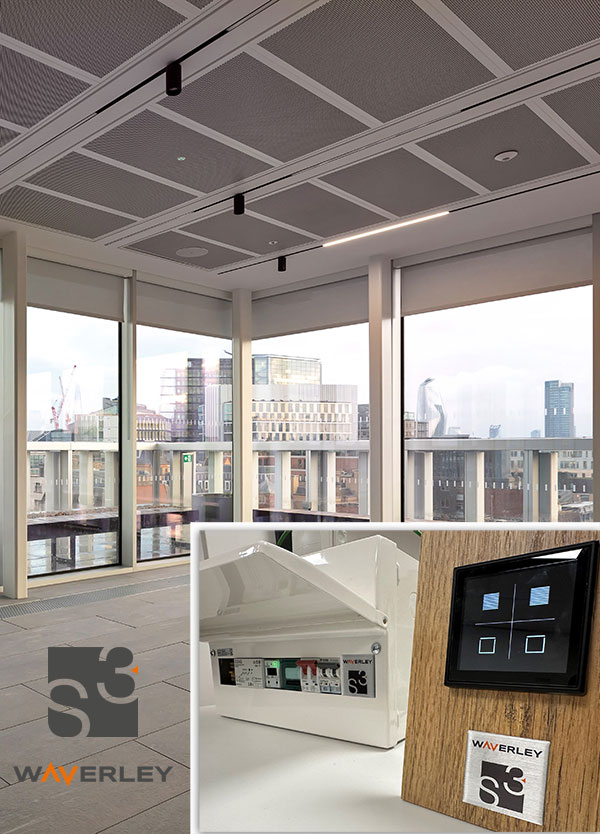Disruption stifles short-term growth
Construction starts have remained sluggish during the first six months of 2024, as high interest rates and a weak economic outlook dented investor and consumer confidence.
The General Election has also affected the pipeline of public-sector construction projects. The purdah period has disrupted the progress of public-funded projects, while decisions will also be delayed post-election as the new government reviews existing programmes such as the Lower Thames Crossing.
Starts on the up
However, an easing in borrowing costs and improved economic conditions – with the UK economy forecast to grow around 0.8% in 2024 – together with greater political certainty, should help to lift investor confidence from the second half of 2024 and into next year.
Despite a tough start, renewed growth in project-starts is forecast for H2 2024. The gradual easing of interest rates is also expected to feed through to lift housing market activity from the second half of this year.
Further, the Spending Review will set out the new government’s funding commitments and priorities and is expected to strengthen public sector construction activity during the second half of the forecast period.
Commenting on the Forecast, Glenigan’s Economic Director Allan Wilen says, “The UK construction sector is still facing significant headwinds as the economy struggles to pick back up. However, there are signs of growth in several key areas, particularly in the private verticals, signalling a gradual recovery from mid-2024. In the private housing sector, for example, we anticipate starts will pick up in the latter half of this year, driven by improved affordability and brighter economic prospects.
“Similarly, we’re forecasting improved activity in consumer-related verticals such as retail and hotel & leisure, as a gradual easing in price inflation is set to provide a boost to households’ spending power. Elsewhere, structural changes are expected to create new opportunities in office refurb and fit-out, while logistics is poised for renewed investment fuelled by online retail growth.
However, he acknowledges the upcoming General Election will have a significant upfront impact on industry performance, particularly in the public sector, “Public-funded investment is expected to stagnate in the near term. The election has disrupted the progress of many projects, with the purdah period leading up to the 4th of July preventing civil servants from making any announcements that could influence voting intentions. As a result, decisions will be delayed until post-election. For example, the Department for Transport has already announced that ministerial decisions on several major projects, including the Lower Thames Crossing, have been pushed back by six months. This means we’ll have to wait until the new Government’s Spending Review for further clarity on budget allocation, and this might not be until Q.4 2024.”
Taking a deeper dive into sector verticals…
Private housing set to rebound

Housing market activity fell sharply in 2023, with the value of project-starts dipping 11% as housebuilders reacted to weakening market conditions and more stringent building regulations.
Private housing starts are predicted to experience slow growth over the forecast period, with Glenigan predicting a 2% rise in 2024 as the market environment gradually picks up. An increase in mortgage approvals in March 2024 (the highest in 18 months) points to a strengthening in house sales in the coming months.
Renewed project-starts recovery is also anticipated in the second half of the forecast period, rising 14% in 2025 and 6% in 2026, as interest rates dip and consumer confidence improves.
Social housing stabilises
The forecast for social housing is mixed, with starts predicted to experience modest growth over the next three years, with a slight dip in 2025.
Greater stabilisation to previously eye-watering construction materials costs in 2024 is expected to boost the sector, with a 4% rise forecast for 2024.
Student accommodation starts are expected to stagnate significantly over the forecast period, due to the government’s visa restrictions on graduate schemes which will likely weaken demand for purpose-built student accommodation. Having been a key driver of sector growth in 2023, this is anticipated to slow down sector recovery.
Glenigan is forecasting a slight decline (-1%) in 2025, however, increased government funding for social housing provision, a major political priority, is expected to lift starts by 7% in 2026.
Slightly brighter outlook for industrial
The industrial sector is experiencing a period of consolidation following a boom post-pandemic, largely driven by significant growth in warehousing and light industrial projects. Looking forward, industrial project-starts are expected to remain weak for the rest of the year, before returning to growth in 2025.
A decline in consumer spending caused the online retail market to lose momentum, tempering the demand for logistics space. Meanwhile, manufacturing output has also been subdued, limiting investment in facilities.
Nevertheless, as the economic outlook and household finances improve, the sector should see renewed growth fuelled by the demand for warehousing and logistics. Consequently, Glenigan is forecasting a 3% growth in 2025, and 4% in 2026.

Utilities to boost civil engineering

A sustained rise in civil engineering starts is anticipated over the next three years, driven by an increase in utilities projects as energy and water companies roll out planned investments. Overall, civil engineering starts are forecast to grow 12% in 2024, with further growth in 2025 (+6%) and 2026 (+4%).
The delivery of existing and planned major capital projects will also drive sector growth from 2025, including HS2 Phase 1.
Retail recovery
Weak consumer spending and the growth in online sales’ market share have constrained retail construction starts over the past year.
Despite this, improving consumer spending is expected to support a recovery in starts from 2024 as retailers and developers move forward with planned projects, with Glenigan forecasting 3% growth in 2025, and 19% in 2026.
Investment by the deep discount supermarkets, Aldi and Lidl, is set to be a relative bright spot within the sector over the forecast period, boosting growth.
Refurb opportunities for offices

Office starts have rebounded since 2023, after weakening economic growth and high interest rates dampened investor confidence and project-starts.
The sector is predicted to benefit over the forecast period from a rise in refurbishment projects, as landlords adapt premises to further accommodate for the rise in hybrid working.
Furthermore, demand for premium ‘green’ office space, is set to support a rise in new build starts during the forecast period.
These opportunities for the sector are predicted to drive growth over the next two years, 12% in 2025, and 4% in 2026.
Hospitality bounces back
The sector was slow to recover post-pandemic, experiencing a period of financial pressure thanks to sharp cost inflation, labour shortages, and weak sales.
However, the hotel & leisure sector is poised for a comeback, with rising disposable incomes and a projected surge in UK tourism expected to fuel investment and propel project-starts over the next three years.
The sector is forecast to see a growth of 6% in 2025, and 7% in 2026.
School projects in danger
A modest rise of 9% in school project-starts is forecast for 2024, building on the momentum from the previous year. Increases to the Department of Education’s capital funding and committed work to tackling RAAC deficiencies saw the sector enjoy significant growth.
However, the general election and the subsequent review period by the incoming government and a decline in higher education projects could dampen overall education project-starts during 2024 (-5%) and 2025 (-5%).
Despite the temporary disruption, Labour’s commitment to increased education funding could lead to a surge in demand for school building projects, driving 6% project-starts recovery in 2026.
NHS investment fuels health growth

Although the post-election spending review may moderate project-starts in 2025, the long-term outlook for the health sector remains positive.
14% growth is forecast for 2024 as delayed projects from 2023 progress to site.
Longer term, NHS capital funding is set to support a rise in starts from 2026, when the sector is forecast to see 4% growth.
These forecasts are built upon the analysis of Glenigan’s database of current and planned construction projects, which have been examined alongside other market and economic variables. To request a copy of Glenigan’s UK Construction Industry Forecast 2024-2026, click here.












